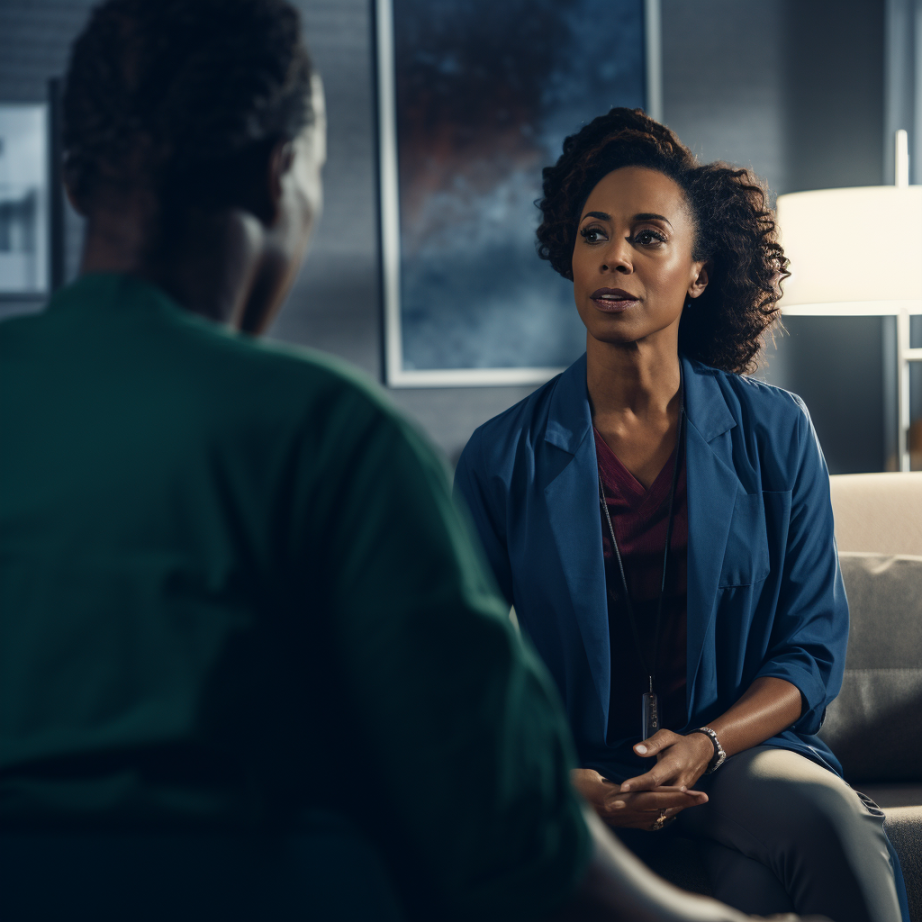Obsessive Compulsive Disorder (OCD) and Me

Amidst #MentalHealthAwarenessWeek, here is a personal post from me Whitney, the Founder of The Self Series. The first diagnosis I ever received was for Obsessive Compulsive Disorder (OCD) and I’ve never really spoken about it because I find it hard to explain to people and I spent so many years being embarrassed about it. I however, have now removed embarrassment and shame from my world and no longer care about the opinions or stigma of other people.
The illness (which can also be considered a disability) affects as many as 12 in every 1000 people (1.2% of the population) from young children to adults, regardless of gender or social or cultural background.
Continue reading for a perspective from me, a Black, Neurodivergent Woman from East London!
Do I consider OCD a disease or an illness? No. I don’t like to say it affects my life, but it does. It’s something I struggle with most moments of the day and I’m so used to it now that it’s like that annoying family member who came to stay at your house but never left.
You probably hear about OCD a lot, with people jokingly proclaiming “oh I’m so OCD” or “oh I’m OCD about so and so”. To be honest I wish OCD worked like that – like it was a feeling that was fleeting or something that is only temporary – but it’s not, it doesn’t work like that.
So what is Obsessive Compulsive Disorder (OCD)?
OCD is an anxiety disorder which involves obsessive thoughts and compulsive behaviours.
Obsessions can include unwelcome thoughts, images, urges, worries or doubts that repeatedly appear in your mind. Something that people don’t often realise is that it can also be possible to experience obsessive thoughts only and not have the desire to carry out a compulsion.
Compulsions are repetitive activities that you do to reduce the anxiety caused by the obsession. Examples of compulsions are excessive cleaning, counting, checking, measuring, and repeating tasks or actions.
Living with OCD is a different experience for each person. Because these thoughts and compulsions can feel overwhelming, they can have a huge impact on your day-to-day life.
Having and living with OCD can have a huge impact on your day-to-day life and impact things like: your relationships, self-confidence, social life, educational experiences, work experiences
everyday tasks, mood, and your daily routine. However, experiences differ for each person and it’s important not to generalise your understanding of OCD.
What is it like to live with OCD?
My OCD is mostly to do with contamination – although it sometimes manifest as other forms of OCD too. Things that I consider dirty or capable of “contaminating” me will trigger obsessive thoughts and compulsions.
My obsessive fears tend to be along the lines that a contaminated thing may cause illness, and ultimately death, to a loved one or myself. Something as little as pushing a “dirty” trolley in a supermarket, touching a “dirty” button in a lift, or simply going to a location I haven’t been to before and “given the all clear for contamination” seal of approval can trigger these thoughts. A bit extreme. A lot annoying.
I used to think I just had weird tendencies or that everyone thought exactly like me when faced with things that could possibly contaminate them. People would laugh at things I would do and the extremes that I would go to in order to avoid contamination. I would laugh too. “Of course I was just being silly and my behaviour was illogical.”
When I came to university – an entire change of scenery and environment – my OCD got more intense and exhausting and I knew that I had to speak to a doctor and check if I was okay. At this point I didn’t really even know what OCD was, I just knew I needed help and that my day-to-day life was being impacted to the point where I was no longer able to leave my bed – let alone my room – for the fear of being contaminated in some way, shape or form. I would feel helpless, depressed and completely stupid and pathetic. Mostly, I felt like a prisoner in my own body. I had no idea what was wrong but once I went to the doctor I was eventually diagnosed with OCD.
What treatment is used for Obsessive Compulsive Disorder (OCD)?
Initially, I tried individual therapy and then group therapy. However, for me they were ineffective (sadly) and only reinforced more strongly the illogical thought processes I would go through daily.
Cognitive Behaviour Therapy (CBT) is the most common form of therapy provided and a lot of it is exposure to your issue and learning to deal with it. For me that was a no no. Trying to navigate university, deal with exam stress and deal with exposure to triggers was not an option for me. After, unsuccessfully trying individual and group therapy, I tried medication. This was the closest to dealing with my OCD at the time but after a bad experience with medication, I completely stopped any form of treatment. I will say that most people I speak to who try CBT actually see the benefits and have a wholly positive experience. I think it’s important to share mine as it was not the case for me. The important thing is to make sure you’re consulting with a doctor or health professional during the entirety of your treatment and be honest too! There should be no shame.
At the moment I just “deal” with the OCD; when it is manageable and when it is not. I’ve become very savvy at working out when and what things can trigger it and avoiding those situations; and when those situations are unavoidable I have my own ways of trying to overcome it and know my own tried and tested coping strategies.
I’ve come to accept that I probably won’t be “cured” from OCD and I can accept that it’s just a part of me and who I am. I may do things a little differently and I may be a bit weird – but I am dealing with it, moving forward, and getting through everyday without surrendering to it completely.
For anyone else also just trying their best, I’m proud so proud of you and us! High five!
Me and OCD
If you know me IRL, chances are you won’t have even known I have OCD, I’ve probably had a panic attack and you won’t have noticed (unless of course you know and you noticed haha).
In my family mental health issues weren’t really a thing and it’s only recently that I’ve been able to talk about my OCD openly. The problem is that it is entirely illogical in nature and so trying to make someone else understand is super difficult – but not an impossible task.
How do you explain something that you don’t really understand yourself?
But speaking about it and making an effort to explain has helped my friends and family to support me and has definitely lifted a burden off my shoulders. I don’t feel so much like a weirdo and the more I can understand myself the more I can deal with it and navigate life.
There’s so much more about OCD that I can get into but my main comment is always that it’s not a penchant for neat and organised things. It’s not just you being a super tidy and ordered person or a little OTT. If I had a pound for the amount of times I roll my eyes when OCD is used as a joke or an adjective, I’d be living in the Bahamas retired!
OCD is actually really exhausting, draining and affects simple day-to-day tasks. It’s definitely not a cute little quirk – it’s bloody annoying! But I shall end the blog post here and hope I given you a little more insight into the Invisible Disability that is Obsessive Compulsive Disorder.

Before You Go
Do you or someone you know live with Obsessive Compulsive Disorder (OCD)? Got a story to share or want to know more about it? Send us a message or join the community and let’s continue to conversation.
-
The Self Series was created to help people of all backgrounds start and continue their journey towards self development. We help you practice self love and self care, to improve mindset and to overcome imposter syndrome so you can align yourself with your life goals and plans.
- At The Self Series, you can find tips, advice and articles on the topics of self development, society, personal finance and mental health. In the meantime, check out our resources and get started on your journey to self development and consciousness.














